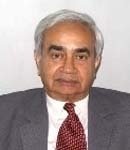War Against Terrorism: Can it be compartmentalized?
21 May, 2002 · 756
PR Chari says credible war against terrorism requires abjurance of cant and hypocrisy of the nations concerned
Is the war against terrorism contextual? Is it premised on time and place, requiring a case-by-case determination? These uncomfortable questions need being raised about the current American, Pakistani and Indian approaches towards this war against terrorism.
World
Trade
Centre
Towers
in
New York
and the Pentagon on September 11, causing a grievous loss of civilian lives. This led to the spouting of high rhetoric by President Bush to alleviate the American nation’s unaccustomed sense of vulnerability and violability. But, the American war against terrorism soon transformed itself into a single-minded effort to capture Osama bin Laden and Mullah Omar, and the decimation of the Taliban/ al Qaeda outfits. The
United States
has committed itself now to the daunting task of governing
Afghanistan
, whilst continuing to search for the elusive Osama bin Laden and Mullah Omar.
11 September 2001 by the
United States
. Neither was
Pakistan
earlier presented with the Hobson’s choice of either supporting the Taliban/ al Qaeda organizations or joining the global effort against international terrorism. Only the slightest reflection would inform that the ISI, Taliban and al Qaeda had formed an unholy alliance, bonding President Musharraf with Osama bin Laden and Mullah Omar. None of this was unknown to the ubiquitous CIA. The entirely contextual nature of the present US war against terrorism is patent; its past assistance to terrorist groups in
Southern Africa
and
Central America
might be usefully recollected in this regard.
Pakistan
, the major problem confronting President Musharraf’s participation in this war, despite the high rhetoric in his January 12 speech against the Jihadists, lies in reversing a policy assiduously pursued by his predecessors and himself for decades. Further,
Pakistan
’s strategic goal in fomenting the proxy war in
Kashmir
was designed to turn that State into a modern-day version of the “Spanish ulcer” that defeated Napoleon. This objective could never have succeeded in detaching
Kashmir
from
India
. In truth,
Pakistan
’s internal socio-political problems have greatly worsened instead; but its folly in continuing with this bankrupt policy exemplifies what Barbara Tuchmann said: “All misgovernance is contrary to self-interest in the long run, but may actually strengthen a regime. It qualifies as folly when it is perverse persistence in a policy demonstrably unworkable or counter-productive”.
Pakistan
’s present unenthusiastic support to the war against terrorism is entirely contextual; whilst supporting the
US
military campaign against the Taliban and al Qaeda in
Afghanistan
, it has continued to encourage their depredations in
India
.
India
’s problems with cross-border terrorism dramatized by the brazen assaults on major symbols of Indian democracy viz. the J&K Legislative Assembly on 1 October and Parliament House on 13 December last year.
India
has wisely chosen to unreservedly join the global war against terrorism in its best national self-interests. But its recent history would reveal the contextual nature of its present policy.
India
had encouraged, trained, armed, and financed the Mukti Bahini to excise
East Bengal
from
Pakistan
and create
Bangladesh
in 1971. Indeed, a proposal was made within the inner councils of the Government in 1986 that
India
might promote a joint statement pledging South Asian countries to eschew supporting terrorism in their neighbours. This was rejected as being “disastrous”. The reason was clear; such a statement would have indicted
India
’s covert support of the LTTE and other militant Tamil groups in
Sri Lanka
highlighting the contextual nature of
India
’s perceptions of terrorism. The rest, as they say, is history.
South Asia
only through the prism of national self-interests because, unsurprisingly, several bureaucratic constituencies are flourishing in the region that have a stake in not defeating terrorism. How committed the United States, Pakistan and India are to continuing the war against terrorism once the immediate problem of establishing a government with some minimal credibility in Afghanistan is achieved and the US turns its attention to some other troubled region in the world will soon become clear.
New Delhi
has placed itself in limbo; opening hostilities with
Pakistan
could lead to unpredictable escalation. Withdrawing its troops, however, would resemble a similar exercise by the Duke of York in the Regency period who marched his troops up a hill and, thereafter, marched them down the hill.
No religious or political objectives can justify the horrendous attacks on the
However, the painful question must be asked why the evils of terrorism, personified by this elusive duo, was undiscovered until
Coming to
That brings me to the Indian case. The NDA government’s alacrity in supporting the American war against terrorism was conditioned by
What emerges from this dismal recital is that cant and hypocrisy must be abjured if the war against terrorism is to be credibly fought. Regrettably, it is viewed in
Meanwhile, by concentrating its troops on the border


